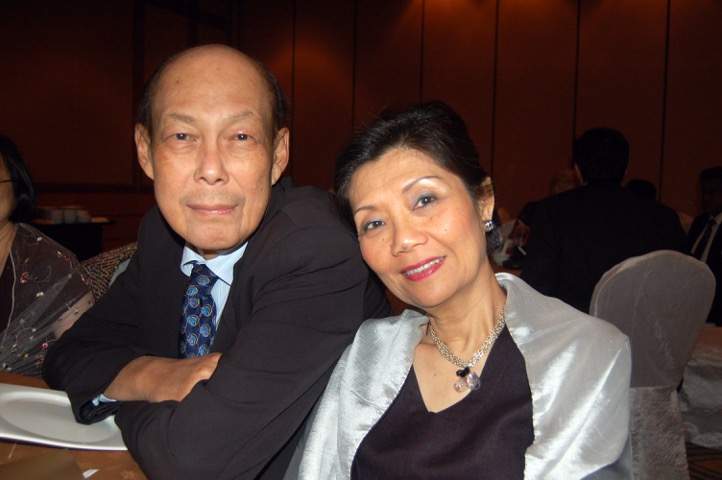Scripture’s impact on our conscience
Bishop Emeritus Robert M Solomon // October 17, 2018, 1:37 pm

Photo by Patrick Fore on Unsplash
“My conscience is captive to the Word of God.” (Martin Luther)
The conscience that is regenerated at conversion needs continuing education and must be helped to develop great moral and spiritual ideas and habits. It is when it is left alone, neglected and ignorant that it continues to malfunction, or its voice is weak and muffled.
The question is: How does God write His law in human hearts, into the redeemed human conscience?
The answer would be that He does this through His Word and Spirit.
Heart-reaching Scripture
The church has largely forgotten the wisdom of the ancient fathers who saw Bible-reading as a multifaceted spiritual exercise.
True effective Bible study that tutors our conscience in the moral ways of God brings us close to God.
When we read our Bibles, we are to read them literally, figuratively, and with an eye to that which deals with moral or divinely mysterious dimensions of our spiritual lives. People today read the Bible (when they do read the Bible) more for information.
But there is a difference between informational reading and formative reading. The first kind does not go deep enough; it makes us well-informed but does not transform us much. It is unfortunate when Bible-reading and Bible studies have more to do with the exchange of information than spiritual transformation.
One of the important ways to read the Bible is to read it for the moral imperatives and implications. We have to read it to discover God’s mind, to appreciate His character, and to appropriate His moral framework in which to live.
A failure to do this will keep us stunted when it comes to the important moral aspects of our spirituality. The conscience in this regard will remain ignorant and uneducated, shaped more by the general culture outside than by the Word of God.
We read Scripture to discover God’s mind, to appreciate His character, and to appropriate His moral framework in which to live.
This does not mean that we have to scrupulously underline the moral rules when we read the Bible, or that underlining the Bible should become our major exercise when we study the Bible together.
It takes more than that.
True effective Bible study that tutors our conscience in the moral ways of God brings us close to God, think with Him and see things as He sees them.
In other words, our Bible study must help us to develop biblical perspectives and a biblical mind. We need the big picture of who God is, what He is doing and what His will is. Only then can we develop a truly educated and recalibrated conscience that is trained in the atmosphere of the biblical world and its worldview.
According to John Wesley in his sermon, On Conscience, the conscience needs to be directed by the Word of God and assisted by the Holy Spirit in order to function properly. Without the Word and the Spirit, the conscience remains uneducated and in the dark.
Finding True-north again
I remember leading a weekly prayer meeting for some years in a particular church. Before we prayed, I would lead in a short time of Bible study and reflection.
After some time, a man who attended these sessions shared with me something from his life. He was working in a company where he had to travel within Singapore to deliver various items for the company.
Without the Word and the Spirit, the conscience remains uneducated and in the dark.
Naturally, his travel expenses were covered by company funds, and he had to submit his expenses in order to be reimbursed.
He was a new Christian and after becoming a Christian, he continued his old practice of claiming taxi-fares when, in fact, he travelled by bus.
He was making a tidy profit in his expense claims. After attending church and the Bible study and prayer sessions, he felt convicted that what he was doing was wrong. No one knew what he was doing, and therefore no one told him that what he was doing was wrong.
His conscience began to bother him and, one day, he decided that he would stop doing that. He would stop claiming taxi fares when he was travelling by bus. (Of course, there was the question of whether he should reimburse the company for all his false claims.)
It is interesting that his conscience, when exposed to the regular teaching of God’s Word, began to be recalibrated and work properly.
It began to bother him, without anyone telling him what he was doing was wrong. Proper exposure to God’s Word, with strong teaching on the implications of God’s law and the need to follow Christ in every sense, will help the conscience to be revived, re-educated, re-calibrated and re-worked.
Guided by the revelation of the Word
Martin Luther’s famous and inspiring words point to the relationship between the Word and the fully-functioning conscience, and the importance of obeying the conscience.
Unless I am convinced by the testimony of the Scriptures or by clear reason (for I do not trust either in the Pope or in the councils alone, since it is well known that they have often erred and contradicted themselves), I am bound by the Scriptures I have quoted and my conscience is captive to the Word of God, I cannot and I will not retract anything, since it is neither safe nor right to go against conscience. I cannot do otherwise, here I stand, may God help me. Amen.
It is important that we allow ourselves, and our beliefs and behaviour to be examined in the light of the Word of God, and for our conscience to be educated by Scripture.
This article is an excerpt from the book, The Conscience: Rediscovering the Inner Compass (Singapore, Armour Publishing, 2014) and is republished with permission. The book is available for purchase here.
We are an independent, non-profit organisation that relies on the generosity of our readers, such as yourself, to continue serving the kingdom. Every dollar donated goes directly back into our editorial coverage.
Would you consider partnering with us in our kingdom work by supporting us financially, either as a one-off donation, or a recurring pledge?
Support Salt&Light




